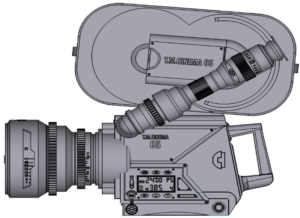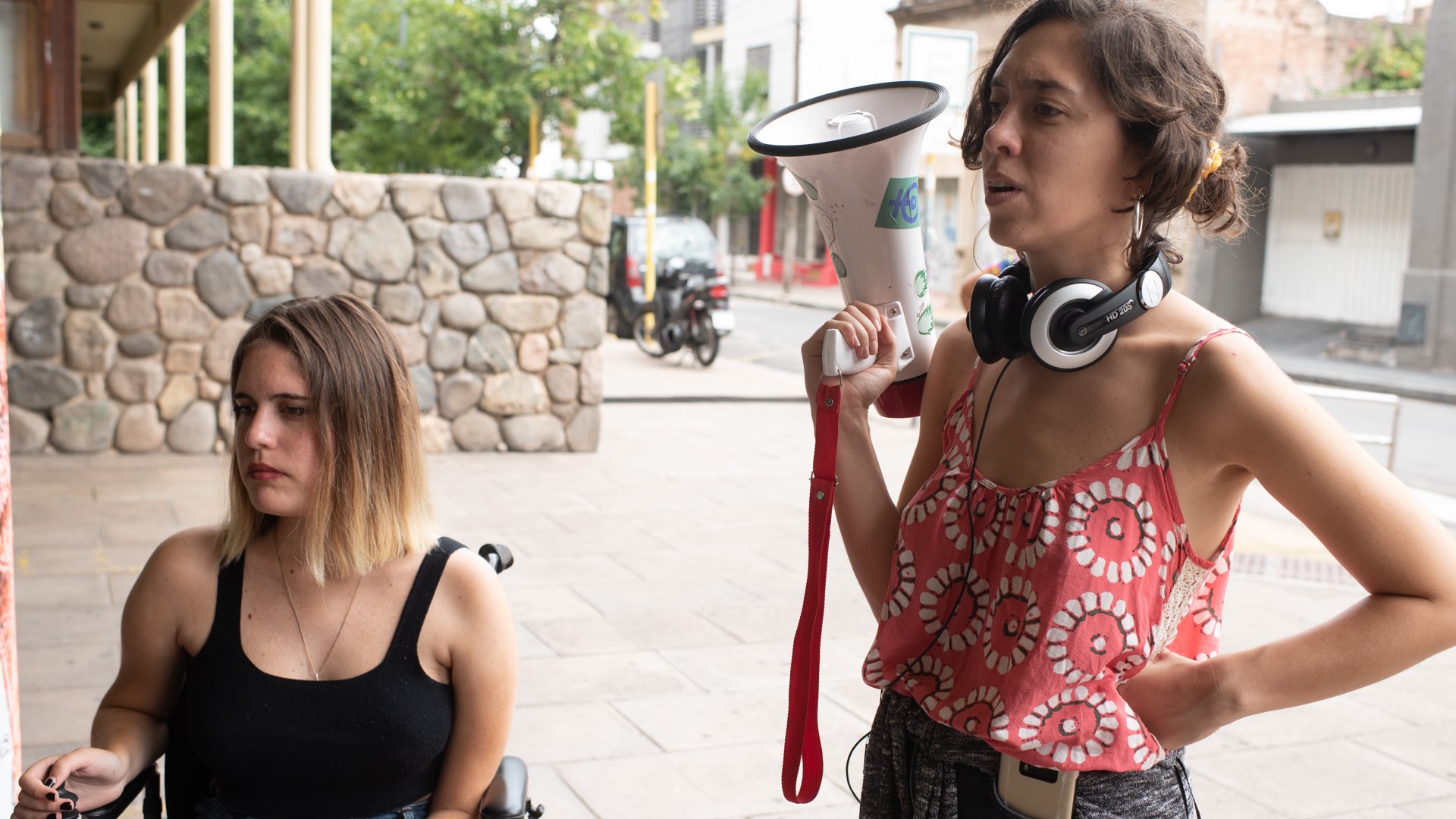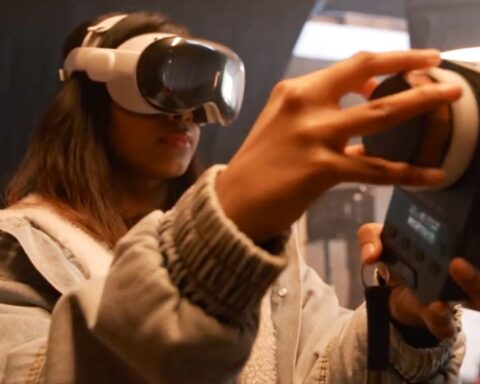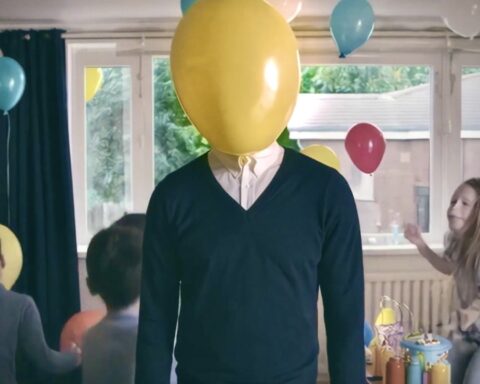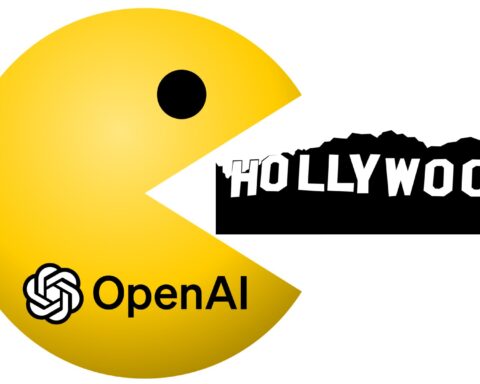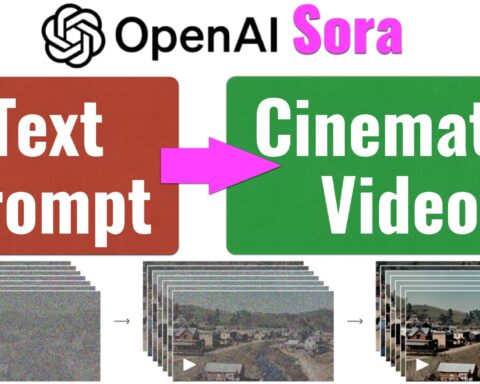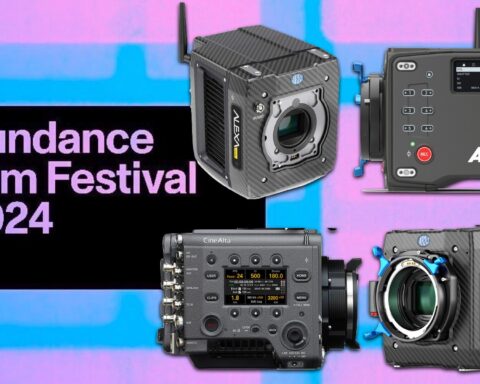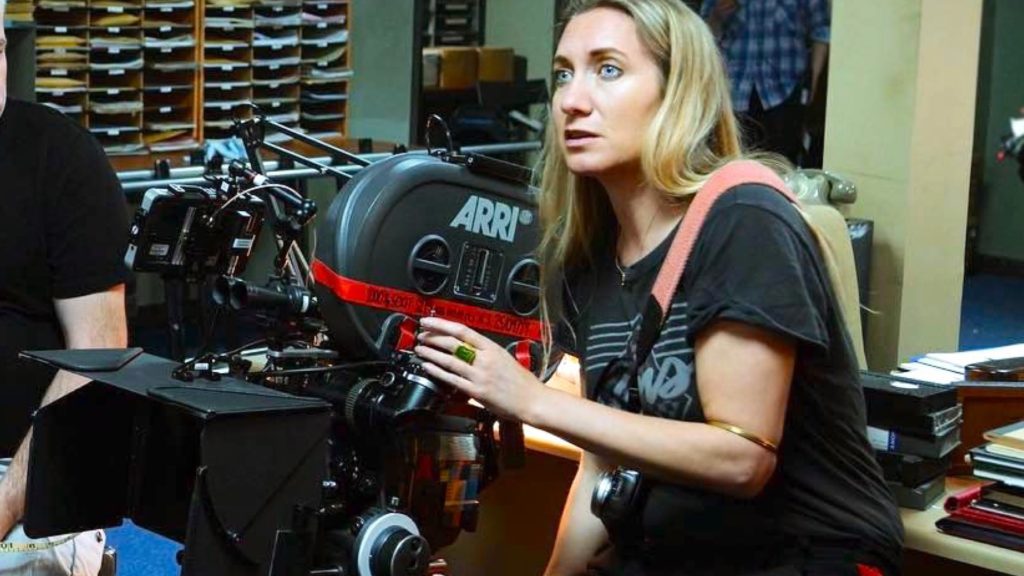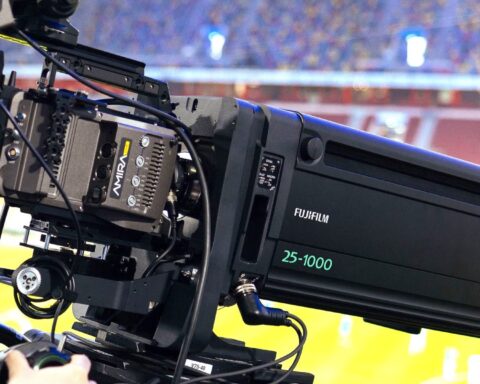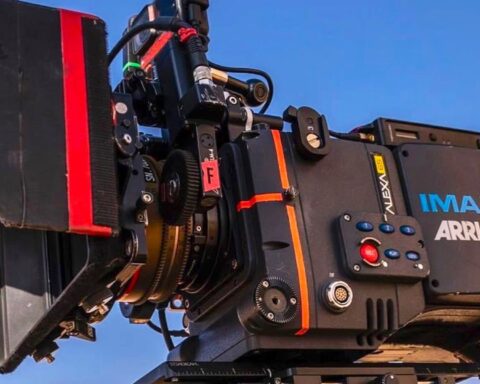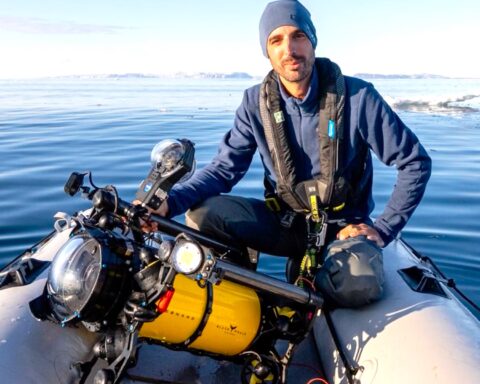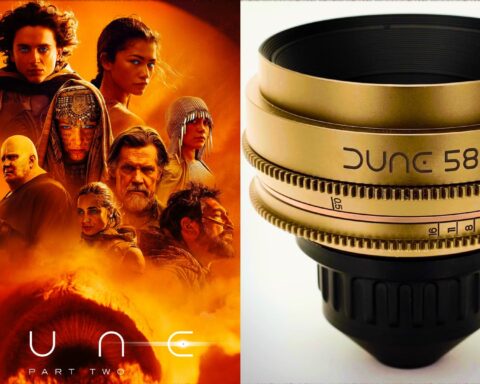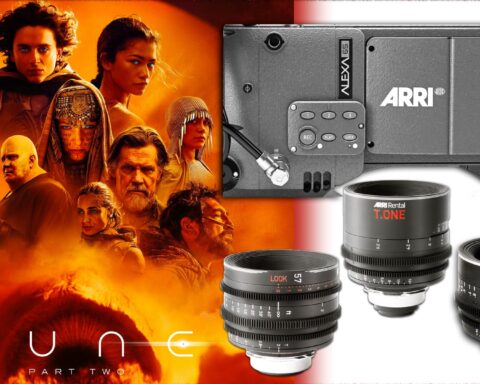As part of our series, Women’s Cinema, we interviewed directors and writers Maria Belen Poncio and Rosario Perazolo Masjoan. In this episode, Rosario and Maria take us behind the scenes of their special and unique independent projects which have garnered prestige prizes and recognitions from top film festivals.
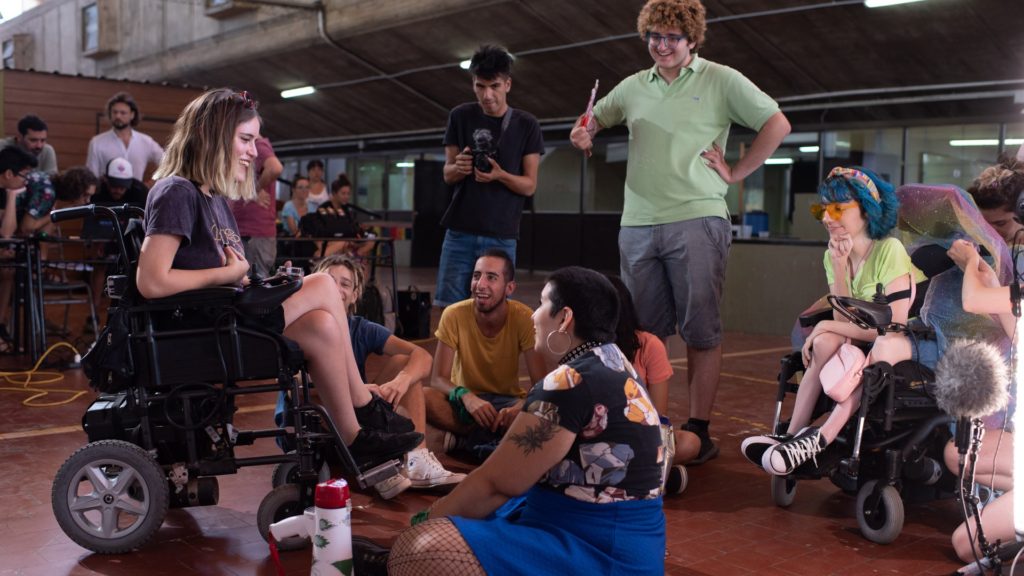
The only thing that makes us continue, is to be allies of our fellow women and to be supportive of each other.
Rosario Perazolo Masjoan
Women’s Cinema by Y.M.Cinema Magazine
Women’s Cinema is a series of articles by Y.M.Cinema Magazine that focus on the women in our industry, with the goal of encouraging women to pursue after filmmaking career and to provide a stage for female content creators in the filmmaking industry, regardless of their roles on set.
This time, we interviewed María Belén Poncio and Rosario Perazolo Masjoan, writers and directors of the very exceptional art-form, 4 FEET HIGH, which was playing in the New Frontier and Indie Series programs at the 2021 Sundance Film Festival.
The power of telling stories
Y.M.Cinema Magazine: Let’s know about yourself, and why (and how) you chose filmmaking as a profession/career.
Maria Belen Poncio: At university, in Córdoba, Argentina, I studied social communication with a focus on audiovisual because I was curious to learn new realities different from mine, to understand them better, meet new people, hear new voices, ask new questions, get closer to other’s stories, work together with them, and share these stories to the world. While working in local audiovisual projects as an editor, camera, and assistant, I fell in love with films for the power of telling stories in image and sound. I did a school documentary work with Bolivian immigrants in my city and a big celebration they do. It was an incredible experience… the whole process of getting into a world that was so near, but also so far away, and to get to know new people with different ways of understanding the world.
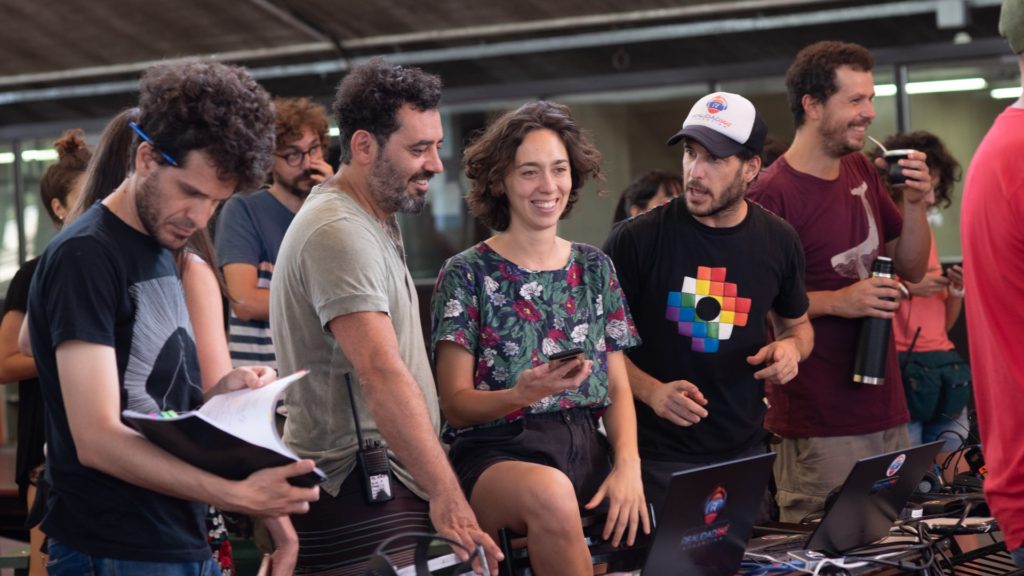
While working on local audiovisual projects as an editor, camera, and assistant, I fell in love with films for the power of telling stories in image and sound.
Maria Belen Poncio
My first professional experience in co-writing and directing was in 2018, with the short VR film 4 FEET: BLIND DATE which participated in the Biennale College Cinema VR. It was a huge learning experience. The short VR film premiered in the Venice Film Festival, Sundance, and 15 other international festivals. It also won awards at SXSW, Guanajuato, Dok Leipizig and Trieste Go Short. After 4 FEET: BLIND DATE, we managed to get the funding and partners to make the cross-platform series 4 FEET HIGH, which I also co-wrote and directed. The series premiered at Venice Film Festival, Sundance Film Festival and won the episodic Pilot Competition Jury and Audience Awards at SXSW 2021, which was a terrific and happy experience for all of us.
I choose filmmaking as a profession because I believe in the power of film and cinema to get closer to different realities, widen our perception of the world, work together with different people and create new worlds, ask new questions, open our minds, broaden our reality, create new ways to relate to others and in the future arrive at a better society and a better version of ourselves. I am moved by curiosity and discomfort. I try to break my own boundaries and break all the certainties I have to find new ones. I think this is the way we can recreate a better future.
I choose filmmaking as a profession because I believe in the power of film and cinema to get closer to different realities
Maria Belen Poncio
Rosario Perazolo Masjoan: My name is Rosario Perazolo Masjoan. I am 24 years old and I am from Argentina. I am a filmmaker and disability rights activist. I’ve also participated in international congresses and social organizations, questioning the social image of people with disabilities. This is my first project as a filmmaker. I first worked in the VR short film, 4 FEET: BLIND DATE as a co-writer. I worked as co-director and co-writer in the series 4 FEET HIGH. I don’t know if I can say that I “chose” this career. The career chose me, and I am so in love right now imagining myself in this world. Filmmaking gives me the possibility to speak through images and sounds and let others be part of that.
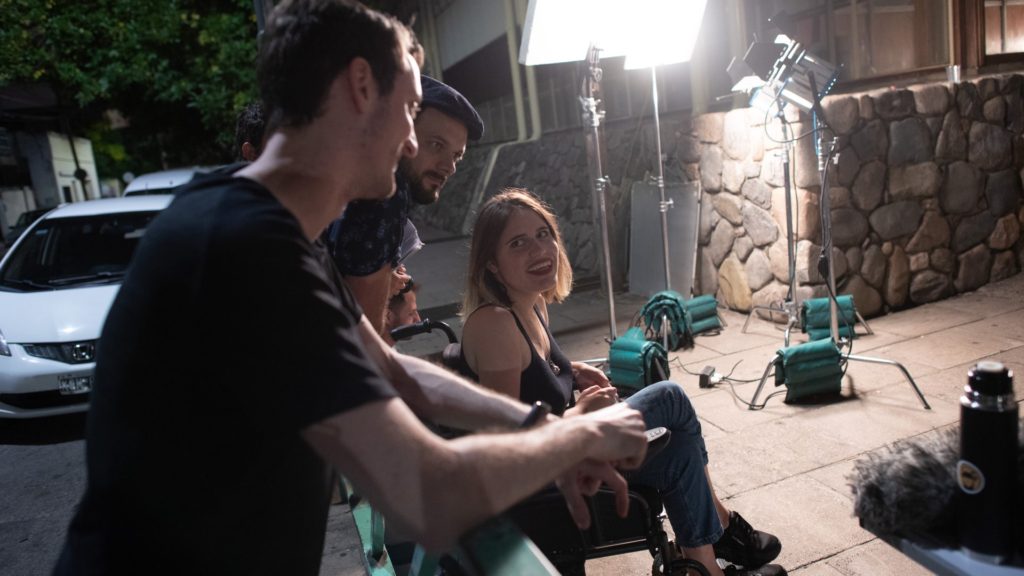
I don’t know if I can say that I “chose” this career. The career chose me, and I am so in love right now imagining myself in this world.
Rosario Perazolo Masjoan
VR filmmaking
Y.M.Cinema Magazine: Name a few interesting projects you took part in.
Maria Belen Poncio: As I mentioned before, I directed and co-wrote the VR short film 4 FEET: BLIND DATE which told the story of Juana, a girl in a wheelchair who goes on a blind date. I then directed and co-wrote the series 4 FEET HIGH, which tells the story of a teenager in a wheelchair who moves to a new school. In this whole process, it was beautiful to work together with Rosario Perazolo Masjoan, who is in a wheelchair, and put my art and knowledge at the service of her life story. To create the space and the dynamic to work together, and to discover her life experience was the best to tell in this story. I was also able to contribute my life experience of being a woman, having been through some process of self-discovery that could also help build a world in which disability was not the main conflict, but only a characteristic of the character. We wanted to create a character in which all women could identify at some point. I tried my best to create a whole universe that could represent young people from Cordoba, Argentina, their interests, questions, and diversity.
Trust yourself first. And trust other women around you. Make female allies to go through this industry.
Rosario Perazolo Masjoan
It was really important for me to show diverse bodies on screen and to rethink our perception of beauty and eroticism. Also to show the fight and commitment of young people. One of the main challenges was finding the main actress, who we wanted to be disabled as a political and aesthetic decision. After a big search, we found Marisol Agostina Irigoyen, who is absolutely talented. Although she didn’t have any acting experience before, I fell in love with her at the first moment. She did amazing, portraying authentic and natural work. Her body is poetry and politics, and her talent to build the character is from another world.
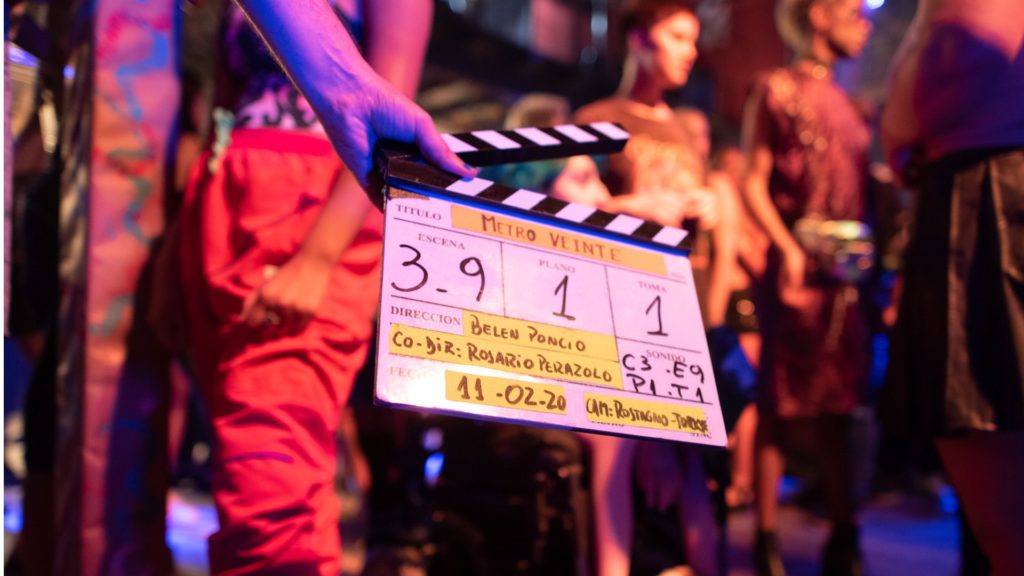
It’s difficult to make a place in the industry. As women, we have to work harder in order to be credible. We have to show self-confidence and show that we can in order for men to believe in us.
Maria Belen Poncio
Before this I had also worked in two short documentaries… one about the Bolivian immigrant community in Cordoba, Argentina, and as a DP in another short about an underground artist, called “The Master of Ceremony.” Both projects made me dive into different realities, which I found amazing and they made me ask a lot of new questions.
Rosario Perazolo Masjoan: This is my first project. Now I’m working on a documentary.
The rules of the patriarchy
Y.M.Cinema Magazine: What’s it like to work in a professional environment dominated by men? As the majority of the filmmaking industry are men, do you feel that you have a glass ceiling above you?
Maria Belen Poncio: It’s difficult to make a place in the industry. As women, we have to work harder in order to be credible. We have to show self-confidence and show that we can in order for men to believe in us. Also there a lot of men who show themselves as “allies” or feminists, but they continue promoting the rules of the patriarchy, wherein they need to feel more powerful, have control, and be the ones who “give us opportunities”. When we manage to grow on our own, or to have a voice they start to feel uncomfortable and we have to put the necessary limits.
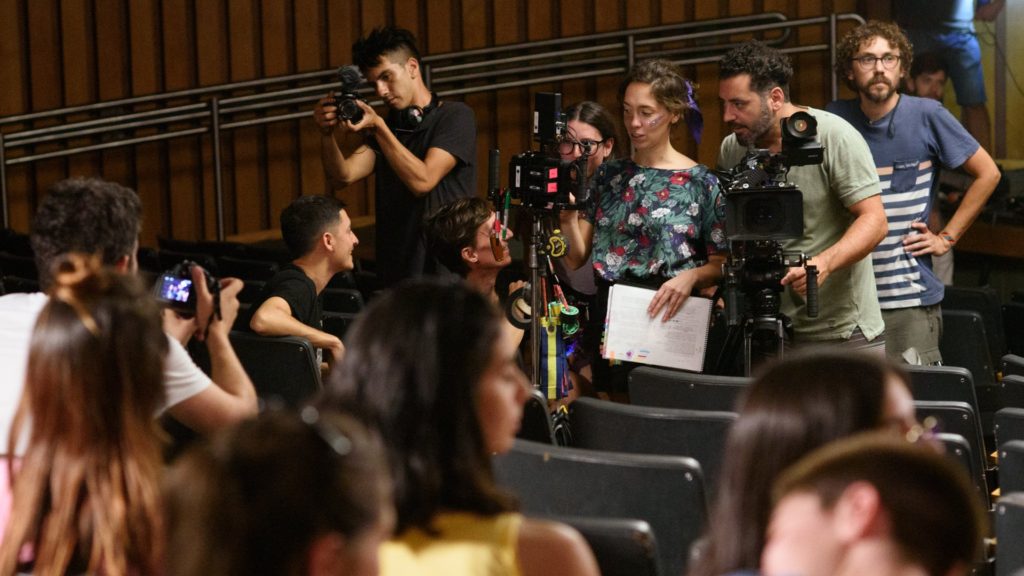
Also there a lot of men who show themselves as “allies” or feminists, but they continue promoting the rules of the patriarchy.
Maria Belen Poncio
Rosario Perazolo Masjoan: I feel that even if you are lucky enough to work with women, you are always going to run into men in power who always seem to have to “ask permission” to do your job. The only thing that makes us continue, is to be allies of our fellow women and to be supportive of each other.
The Glass ceiling
Y.M.Cinema Magazine: Do you feel that you have to try harder as a female filmmaker in order to make a climb in the industry?
Maria Belen Poncio: Absolutely yes. We need to show much more security and self-confidence than men do. We have to be more prepared. We cannot make a mistake because as soon as you do something wrong, they will think that you are not able because you are a woman and you are weaker. It is very hard to go against these thoughts that are so naturalized, part of Latin American society. Even we as women are used to these aspects that we don’t see and don’t notice until someone else tells us. Men usually trust in men, and they forgive more things between one another than they do with us women.
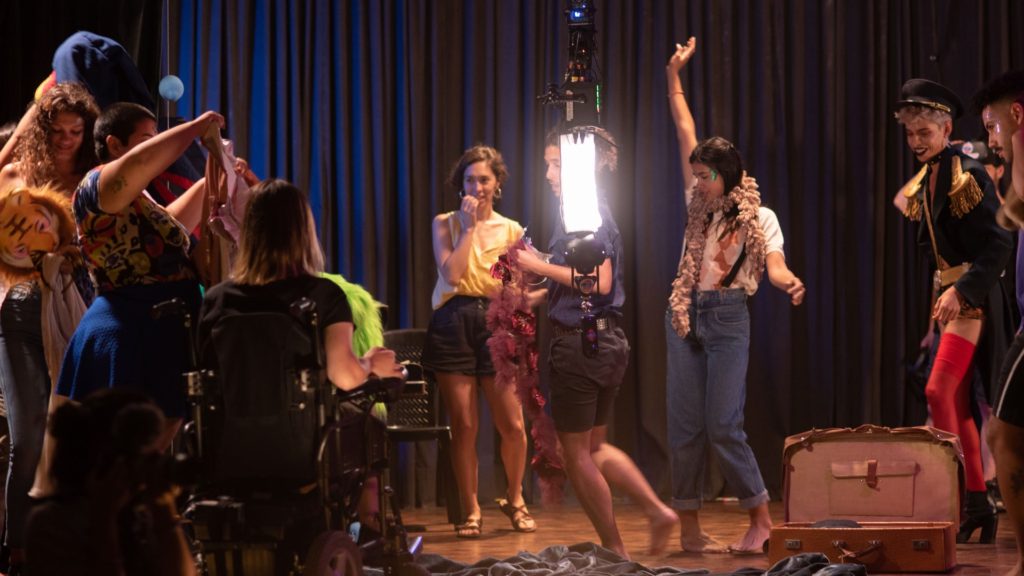
We need to show much more security and self-confidence than men do
Maria Belen Poncio
Rosario Perazolo Masjoan: I am used to the fact that men are always the ones who doubt our decisions and make us feel crazy and hysterical when we disagree. The work is full of microcosms that not even we ourselves realize that sometimes we end up believing that we are crazy and surely someone else, a man “knows better”. “Stop mistrusting yourself” is the hardest thing to break.
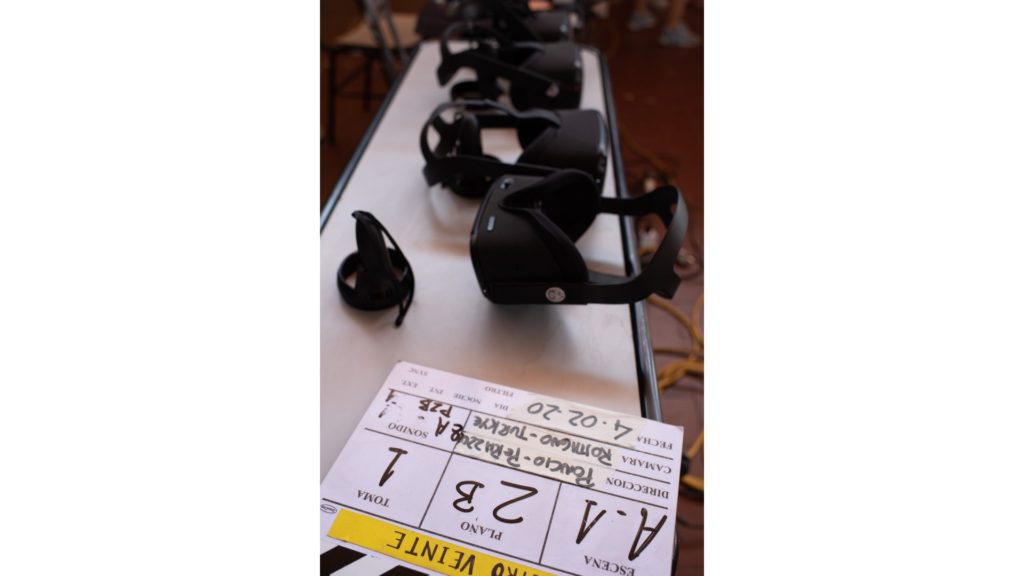
The work is full of microcosms that not even we ourselves realize that sometimes we end up believing that we are crazy and surely someone else, a man “knows better”. “Stop mistrusting yourself” is the hardest thing to break.
Rosario Perazolo Masjoan
Final thoughts
Y.M.Cinema Magazine: Do you recommend other women to pursue a filmmaking career? If so, what’re your tips and tricks to do so?
Maria Belen Poncio: Definitely yes. I hope that more and more women tell our stories, our understanding of the world, and our questions because we have learned the world mainly from the perspective of men… this is what convinced all of us that we have to behave in a certain way or to look as they want as to look. It is time to break this point of view and create a new one that includes women complete with our diversity, our imperfections, and our strength.
Rosario Perazolo Masjoan: Trust yourself first. And trust other women around you. Make female allies to go through this industry.

